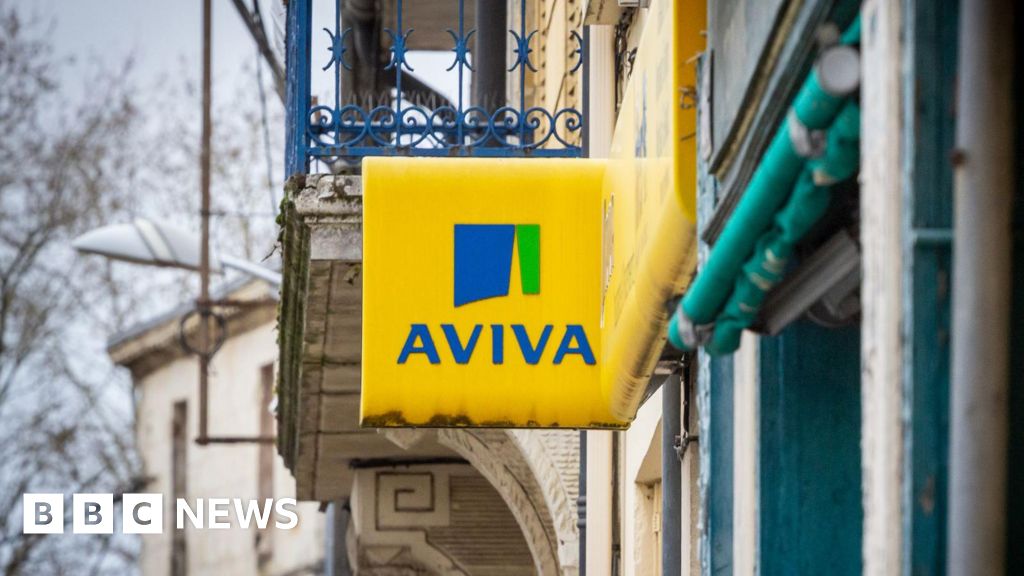ARTICLE AD BOX
7 minutes ago
By Michael Race & Faisal Islam, Business reporter & Economics editor, BBC News
A new law is set to prevent any future government from sidelining the UK's independent forecaster from assessing its economic plans like former prime minister Liz Truss did for her short-lived mini-budget.
Powers will be given to the Office for Budget Responsibility (OBR) to make judgements on any major taxation or spending announcements in a bid to deliver "stability", the Treasury said.
Ms Truss's mini-budget saw her administration shun the OBR when it announced £45bn in unfunded tax cuts in September 2022, spooking financial markets and leading to mortgage rates soaring.
The new Labour government hopes preventing such a move from happening again will build confidence among investors and boost economic growth.
In the City of London later on Thursday, Chancellor Rachel Reeves will tell financiers the "budget responsibility bill" will deliver economic stability, bolster market confidence, and "help protect family finances by keeping inflation, mortgages, and taxes low as low as possible".
The law will mean the OBR, which independently monitors and checks the UK government's financial plans, will have the power to make an assessment on announcements over the course of a financial year, which make permanent tax or spending commitments worth more than 1% of the size of the UK's economy, or around £30bn.
If the government wanted to announce significant economic measures but did not ask for an OBR forecast on the plans, a "fiscal lock would be triggered", the Treasury said.
This would mean the OBR at its own discretion would be able to decide to produce a forecast on such plans.
However, the law does not apply to emergency or temporary measures lasting fewer than two years, such as the government's response to the Covid pandemic.
The lack of an OBR assessment on Ms Truss's and her chancellor Kwasi Kwarteng's mini-budget two years ago were seen as a key reason for the lack of investor confidence in the plans.
This is because the OBR uses its forecasts to assess whether the government is likely to meet the rules it has set for managing the economy. Its judgement is closely watched by investors to see if the plans are sound.
In the aftermath of the mini-budget, the value of the pound crashed, signalling that international investors had no confidence in the government's measures. The Bank of England was also forced to step in to protect pension funds.
Ms Reeves said the government's "defining mission is to deliver economic growth", but that growth can "only come through economic stability and a commitment to sound public money".
"So never again can a government play fast and loose with the public finances," she added. "This new law is part of our plan to fix the foundation of our economy so we can rebuild Britain."
Conservative leader Rishi Sunak said on Wednesday his party would examine Labour's plans to strengthen the OBR "carefully".
The decision by Labour gives the OBR the most power it has ever had over the government's policies since it was set up in 2010 by then-Chancellor George Osborne, which might prompt concerns it has too much sway over elected ministers.
While forecasts help businesses plan where to invest, they are only a guide or a prediction of what will happen in the future and can be wrong.
Since leaving Downing Street, Ms Truss has accused the OBR of belonging to an "economic establishment" that is too pessimistic about the potential benefits of tax cuts on the economy.
On Wednesday, civil servants have changed documents describing Ms Truss's mini-budget as "disastrous" after she complained they showed political bias.
But Paul Dales, chief economist at Capital Economics, said he believed the new law "just formalises the current situation that the government needs to give the OBR enough notice and that the OBR is responsible for costing policy changes and judging whether the fiscal rules are being met or not.
"I don’t think it means the OBR has too much power. Instead, I view it as strengthening the independence required to keep the government straight on fiscal matters," he added.
Laith Khalaf, head of investment analysis at AJ Bell, added while it was "unclear" how much of the turmoil created in the wake of the mini-Budget was created by the lack of an OBR report, it "didn’t help to calm any nerves" among investors.
"Ironically Liz Truss and Kwasi Kwarteng did more to burnish the credentials of the OBR than any politicians since its inception. As things stand, the OBR is now more commanding than ever," he added.

 9 months ago
35
9 months ago
35








 English (US) ·
English (US) ·